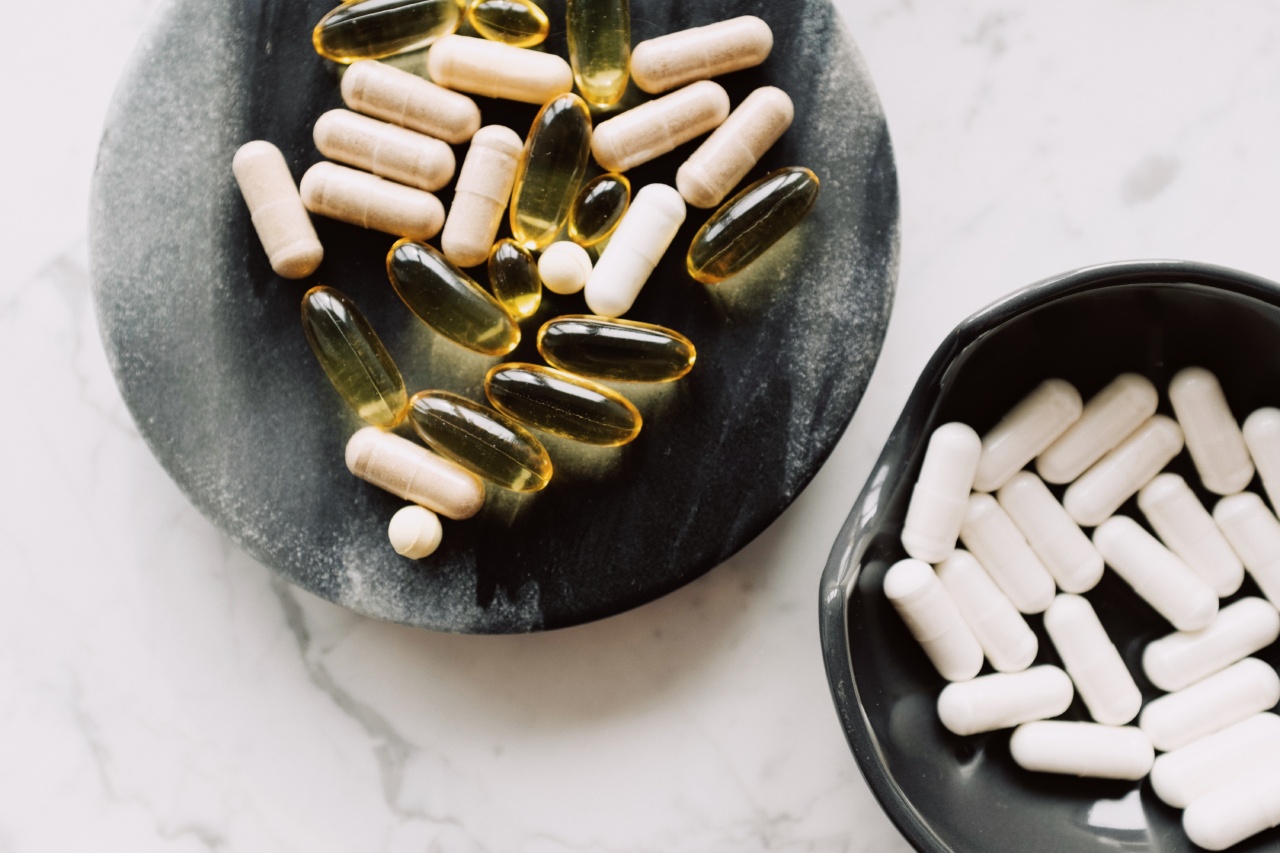Urinary tract infections (UTIs) are a common occurrence, particularly in women. These painful infections occur when bacteria enter the urinary tract and colonize, causing inflammation and discomfort.
While UTIs can be treated with antibiotics, taking preventive measures to reduce the likelihood of infection can help alleviate the discomfort associated with UTIs. Here are six solutions for relief:.
1. Drink plenty of water
One of the easiest ways to prevent UTIs is to stay well hydrated. Drinking plenty of water can help flush any bacteria out of the urinary tract, reducing the likelihood of infection.
Experts recommend drinking at least eight glasses of water or other fluids every day to help prevent UTIs. Water is the best option, but unsweetened cranberry juice is also thought to have a beneficial effect on UTIs. However, it is advisable to avoid sugary drinks and caffeine, which can irritate the bladder and exacerbate symptoms.
2. Take a probiotic supplement
Probiotics are live bacteria that are found in certain foods such as yogurt and kefir. These bacteria can help maintain a healthy balance of microorganisms in the gut and urinary tract, reducing the risk of UTIs.
Taking a daily probiotic supplement can help prevent UTIs and other infections by boosting the immune system and promoting healthy gut flora. Look for a supplement that contains strains of Lactobacillus and Bifidobacterium, which are thought to be particularly beneficial for combating UTIs.
3. Maintain good hygiene habits
Another way to prevent UTIs is to maintain good hygiene habits. This includes regularly washing the genital area with warm water and mild soap, wiping front to back after using the toilet, and wearing clean, breathable underwear.
Avoiding tight-fitting pants and using unscented menstrual products can also help prevent UTIs. It is important to change out of wet clothing, such as swimsuits, as soon as possible to reduce the growth of bacteria.
4. Practice safe sex
UTIs are more common in women who are sexually active. To reduce the risk of UTIs, it is important to practice safe sex by using a condom every time. Urinating before and after sex can also help flush out any bacteria that may be present.
It is important to avoid the use of harsh chemical-based personal lubricants, which can irritate the urinary tract and increase the risk of infection.
5. Use natural remedies
There are a number of natural remedies that can be used to help prevent and treat UTIs. Cranberry extract is one of the most well-known remedies, as it can help prevent bacteria from attaching to the bladder walls.
D-mannose, a sugar found in cranberries, can also help flush out bacteria from the urinary tract. Supplements containing garlic and goldenseal are also thought to be beneficial for treating UTIs.
However, it is important to talk to a healthcare professional before using any natural remedies, as some may interfere with medications or cause unwanted side effects.
6. Seek Medical Treatment
While these solutions can help alleviate UTI symptoms and reduce the likelihood of infection, it is important to seek medical treatment if symptoms persist or worsen. Left untreated, UTIs can lead to complications including kidney damage and sepsis.
A healthcare professional can diagnose UTIs with a simple urine test and prescribe antibiotics or other treatments as necessary.
Combatting UTIs can be a frustrating and painful experience, but by taking preventative measures and seeking medical treatment when necessary, relief is possible.
Whether through natural remedies or lifestyle changes, a healthy urinary tract is essential to overall health and wellbeing.































